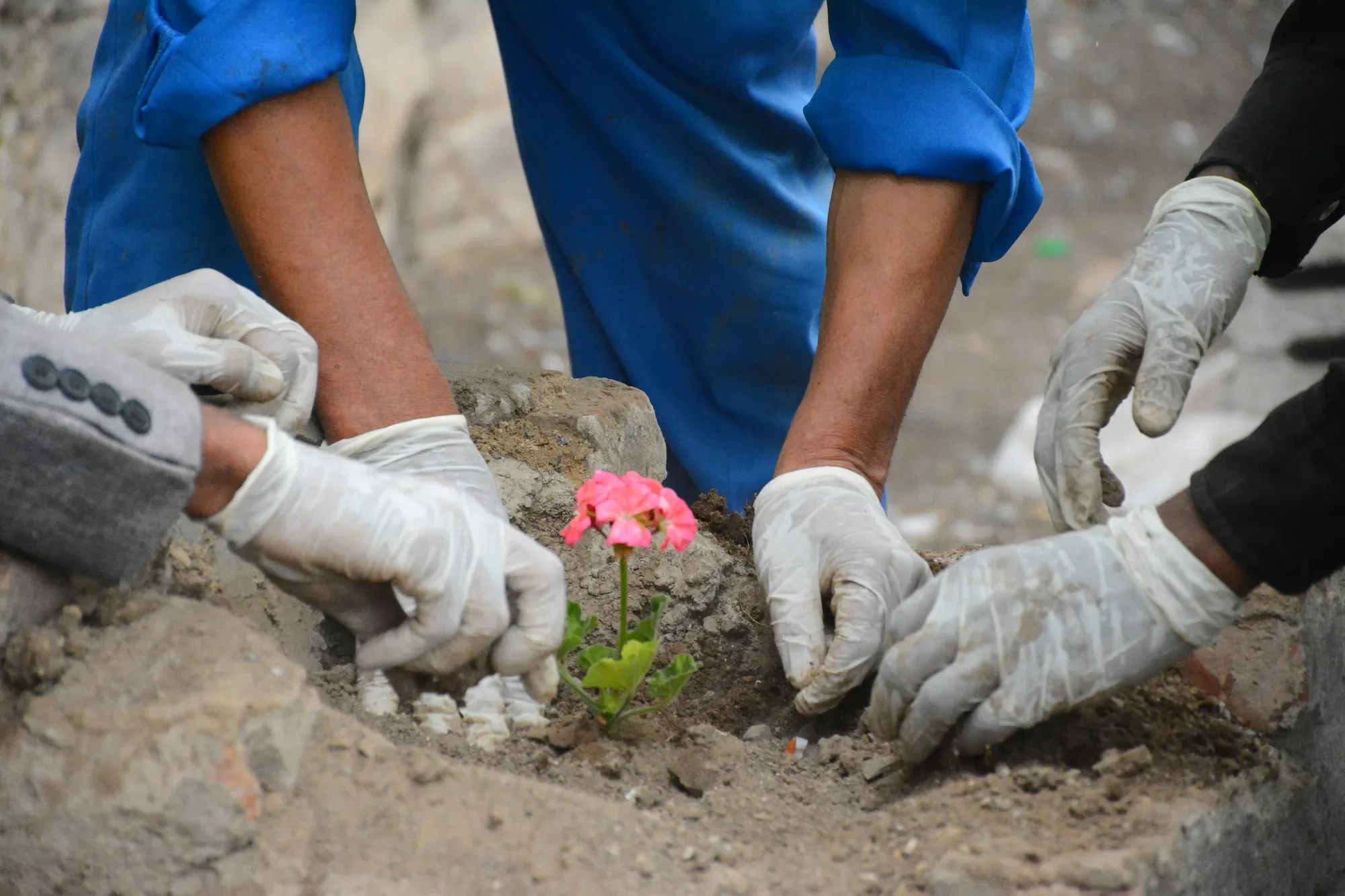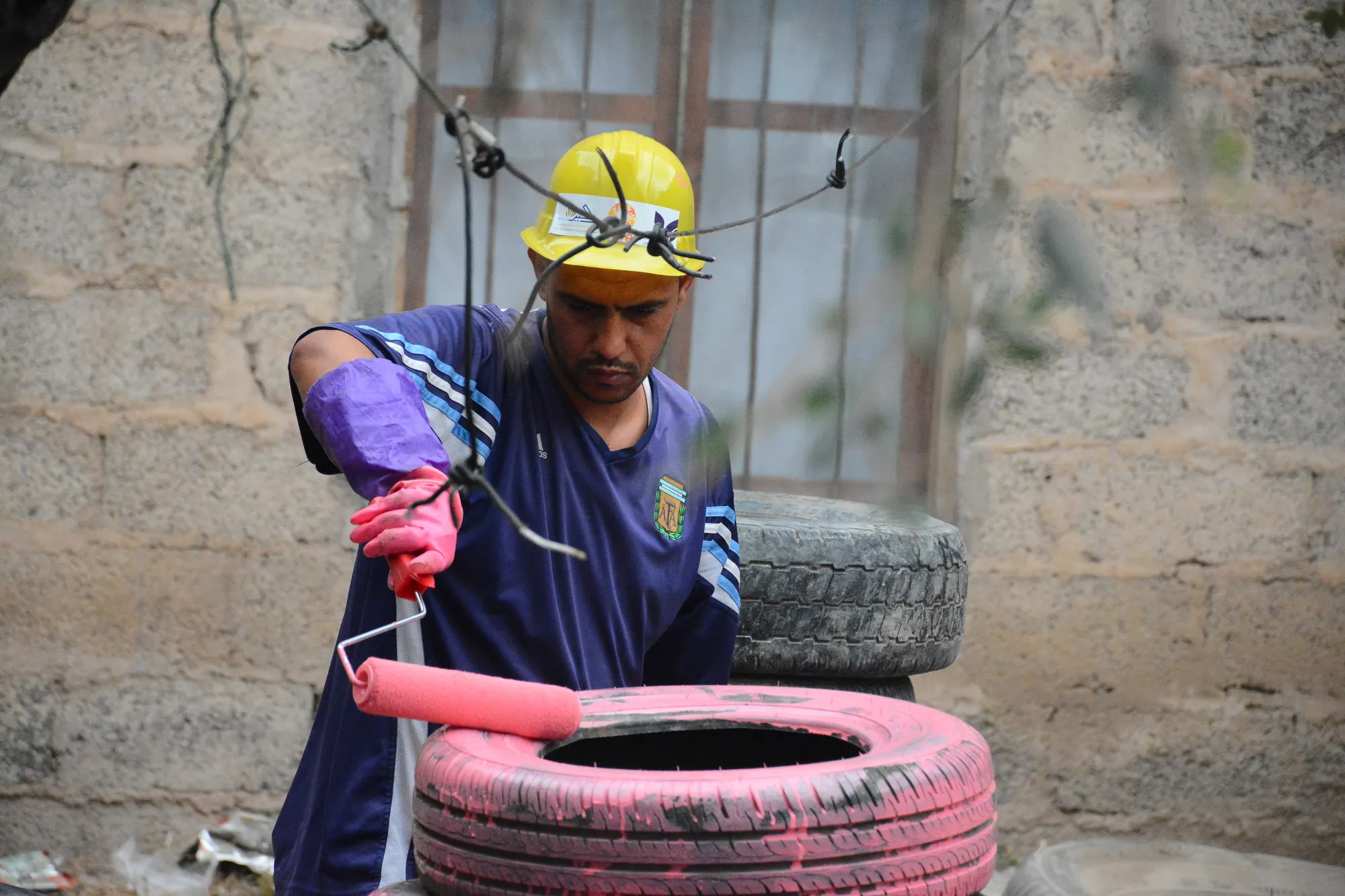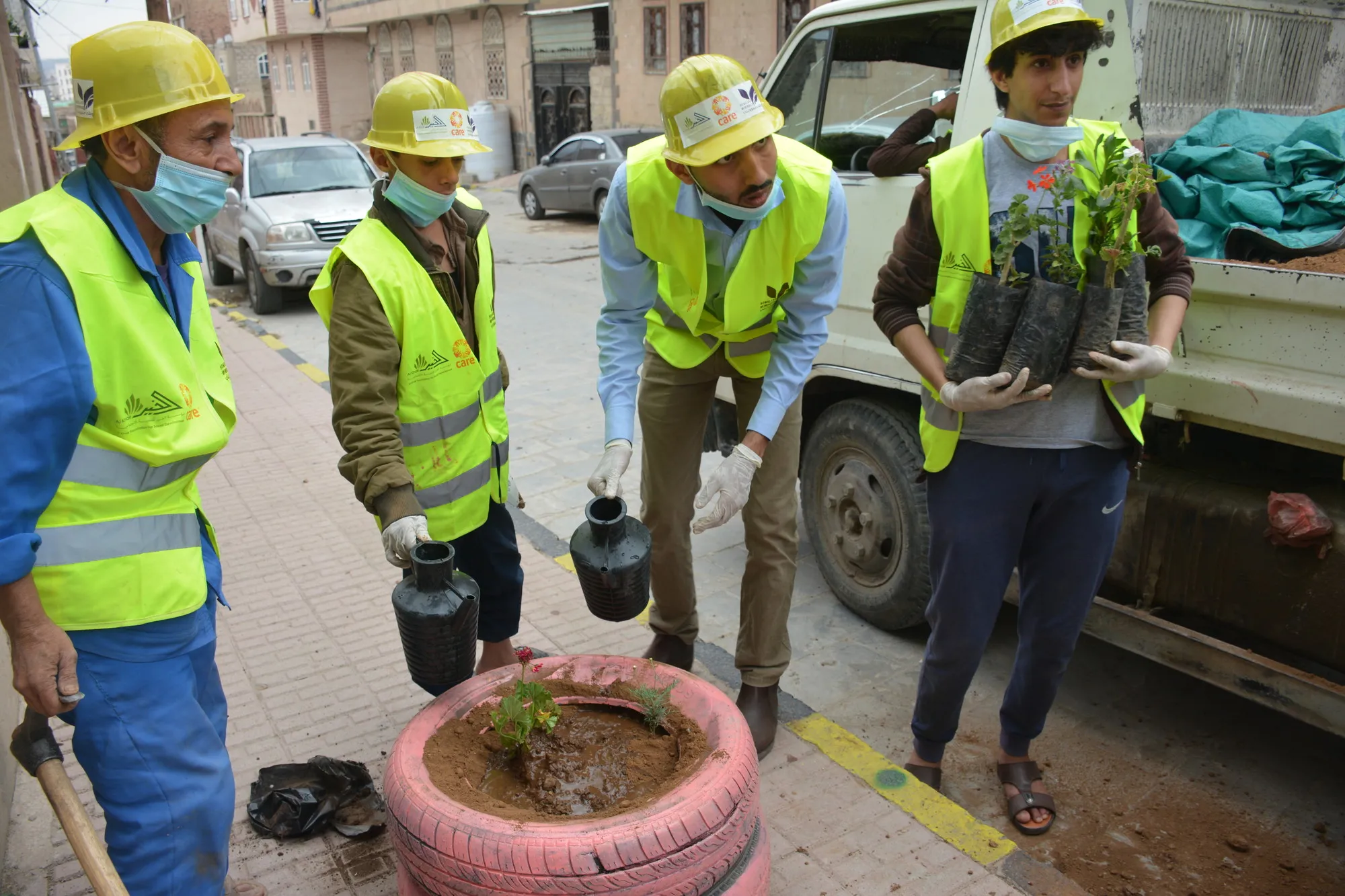One of the bad habits that children often practice in many areas in Yemen is burning tires as a symbol of joy and happiness, particularly before the Eid celebrations. This practice causes serious health issues for children and residents in the neighborhood who inhale the toxic fumes.
Ismail recalls an incident when he asked children not to burn tires. “On the eve of a Eid, my brother helped his friends by collecting tires to burn and jump over them. While he was jumping, he fell down and burnt his foot,” he recalls. “The whole family’s happiness turned into sadness. My family had to spend the Eid holidays in hospital to treat my brother. All the people were enjoying their Eid time while we were sad and hoping that my brother would get better.”
Poor management of solid waste also poses a real danger to the health of residents. The contaminated waste contains hazardous chemicals that can cause disease, including cholera, dengue fever and the latest, Covid-19. Although recycling is fairly new in Yemen, a small-scale effort to recycle plastic, metal and glass has begun recently. Street cleaners and waste collectors gather plastic, metal and other reusable materials from the streets and sell them to merchants. Merchants then send the compost to factories for recycling.
Speaking about his community initiative to help the locals in his area, Ismail says, “I informed a group of friends in the neighborhood about the recycling initiative to clean the area, and they delightfully agreed to help. However, we didn’t have the needed expertise to team up and work toward that goal.
With funding from Reach Out To Asia (ROTA), CARE supported youth initiatives in Amanat Al Asimah governorate to tackle key challenges in their communities. Through the Foundation for Yemen’s Future project, CARE built the capacity of 75 participants to start their community initiatives.



